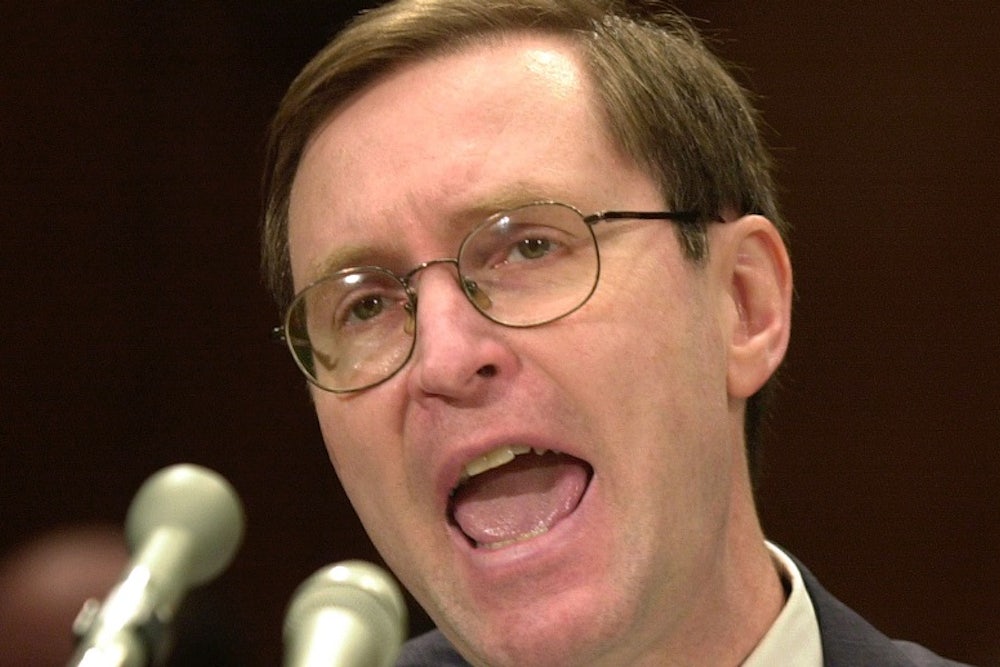In the Wall Street Journal last Friday, Glenn Hubbard, the dean of Columbia Business School and a former economic adviser to Mitt Romney, laid out an odd critique of American Recovery and Reinvestment Act, also known as the stimulus. Hubbard criticizes the Obama administration for focusing too much on “shovel-ready” projects while not implementing a sustained infrastructure program. In fact, that’s the exact sort of thing that the administration has been pushing for, and Hubbard’s fellow Republicans have been blocking, throughout Obama’s presidency.
For the past few years, economists have been debating whether structural or cyclical factors are responsible for reduced labor force participation. Structural factors include the retirement of baby boomers, potential disincentive effects from government policy, and the permanent loss of the long-term unemployed. Macroeconomic policies—like fiscal and monetary stimulus—cannot help fix these issues. Cyclical factors like the shortage in aggregate demand—not enough people want to buy stuff—from the Great Recession, on the other hand, are amenable to macroeconomic policies.
Hubbard does not umpire this debate, but instead lays out the arguments for each side. While he admits that “activist demand policies by the federal government may make sense,” he blames the Obama administration for problems with fiscal policy that Republicans created. Hubbard writes:
To the extent that labor-force participation and job creation have a cyclical element, activist demand policies by the federal government may make sense. Does this mean that the Obama administration's "targeted, timely and temporary" stimulus package was the right approach? Actually, no. Increasingly, it appears to have been a poor match for the severity of the downturn and the magnitude of the required boost.
After the Great Recession's sharp decline in investment and employment, U.S. business probably needed a more curative jolt to restore confidence. A sustained infrastructure program, rather than a temporary one for "shovel-ready" projects, would have provided more reassurance of longer-term demand. And far-reaching tax reform could have provided both a near-term fillip from front-loaded business tax cuts and a credible prospect for future growth.
The Obama administration would likely agree with all of these critiques. Except Hubbard’s blame is misdirected. As Mike Grunwald lays out in his book The New New Deal, the White House wanted a larger stimulus. Congressional Republicans, and some Democrats, blocked it. Obama has repeatedly called for more infrastructure spending—often in the form of an infrastructure bank—in the past few years. Republicans have blocked those proposals. While the administration has not offered a comprehensive tax reform proposal, Republicans ran as fast as they could away from Dave Camp’s plan. It was a clear indication that they are not serious about completing tax reform.
Hubbard refuses to fairly evaluate the weakness in the labor market. He correctly explains the economic debate about the origin of the labor force’s problems—whether they are structural or cyclical. Instead of offering solutions to both factors, Hubbard focuses entirely on the structural side, rattling off a list of supply-side policies, such as reforming Social Security Disability Insurance, expanding the Earned Income Tax Credit, and changing features of unemployment insurance. He offers no solutions to any cyclical problems with the economy—even though he concedes that cyclical factors could be a significant contributor to the weak recovery.
In fact, Hubbard’s critique of Republicans is that they are not focused enough on federal labor policies while Democrats refuse to reckon with the “inadequacy of their stimulus policies.” Baked into this argument is the assumption that the labor markets issues are entirely structural—otherwise, those “failed” stimulus policies could be just what the economy needs. But Hubbard refuses to admit that—possibly because doing so would mean admitting that the stimulus played a role in the recovery and that Republicans were ultimately wrong in opposing it.
